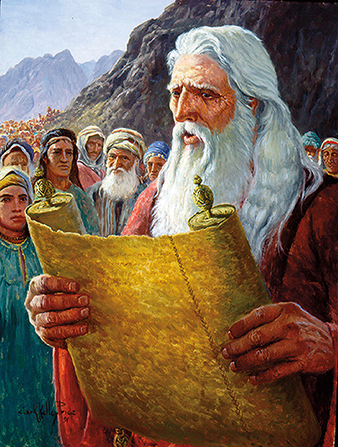
As I re-read Elder Eyring's April 2017 general conference talk I came across this little gem.
". . . the Lord’s work is not just to solve problems; it is to build people. So as you walk with Him in priesthood service, you may find that sometimes what seems like the most efficient solution is not the Lord’s preferred solution because it does not allow people to grow." (Henry B. Eyring, "Walk with Me", April 2017 LDS General Conference)
This statement reminded me of a quote by Stephen R. Covey that I heard a long time ago. He said.
“You think effectiveness with people and efficiency with things.”
— Stephen R. Covey
Remember the story in Exodus 18:12-26. Jethro, the father-in-law of Moses, gives Moses some wise council on effective leadership. The problem was that Moses was spending his entire day sitting as the judge of the people. Jethro pointed out to him that "The thing that thou doest is not good." (Exodus 18:17). Jethro then reminded Moses, that as the prophet, his responsibility was to teach and lead the people (vs. 20). He could choose "able" men to judge the smaller matters and leaving only the hard cases for himself.
This story reminds me that as a priesthood leader to be careful when I start to think that it may be quicker and more efficient if I simply take the responsibility and do the work myself. It often takes longer to teach someone what to do than it is to simply get it done. But as Elder Eyring reminds us, in priesthood service our goal is to help people grow. We may find ourselves starting to look beyond the mark (Jacob 4:14) if we think that we are responsible for the hastening of the work. Re-read the verse about hastening the work carefully:
Behold, I will hasten my work in its time. (D&C 88:73)
Who will do the hastening? He will. It is his work. If he wants it done more efficiently, then he will teach us and show us the way. Our responsibility is not to create and run the most highly-efficient organization, our focus is elsewhere. From that same talk, Elder Eyring made it clear how we should participate in the work.
"Remember that God’s work and glory is not simply to run an effective organization; it is “to bring to pass the immortality and eternal life of man” (Moses 1:39) This is, after all, why He gives His priesthood authority to flawed mortals like you and me and invites us to participate in His work. Our progress is His work!" (Henry B. Eyring, "Walk with Me", April 2017 LDS General Conference)
Comments
Post a Comment